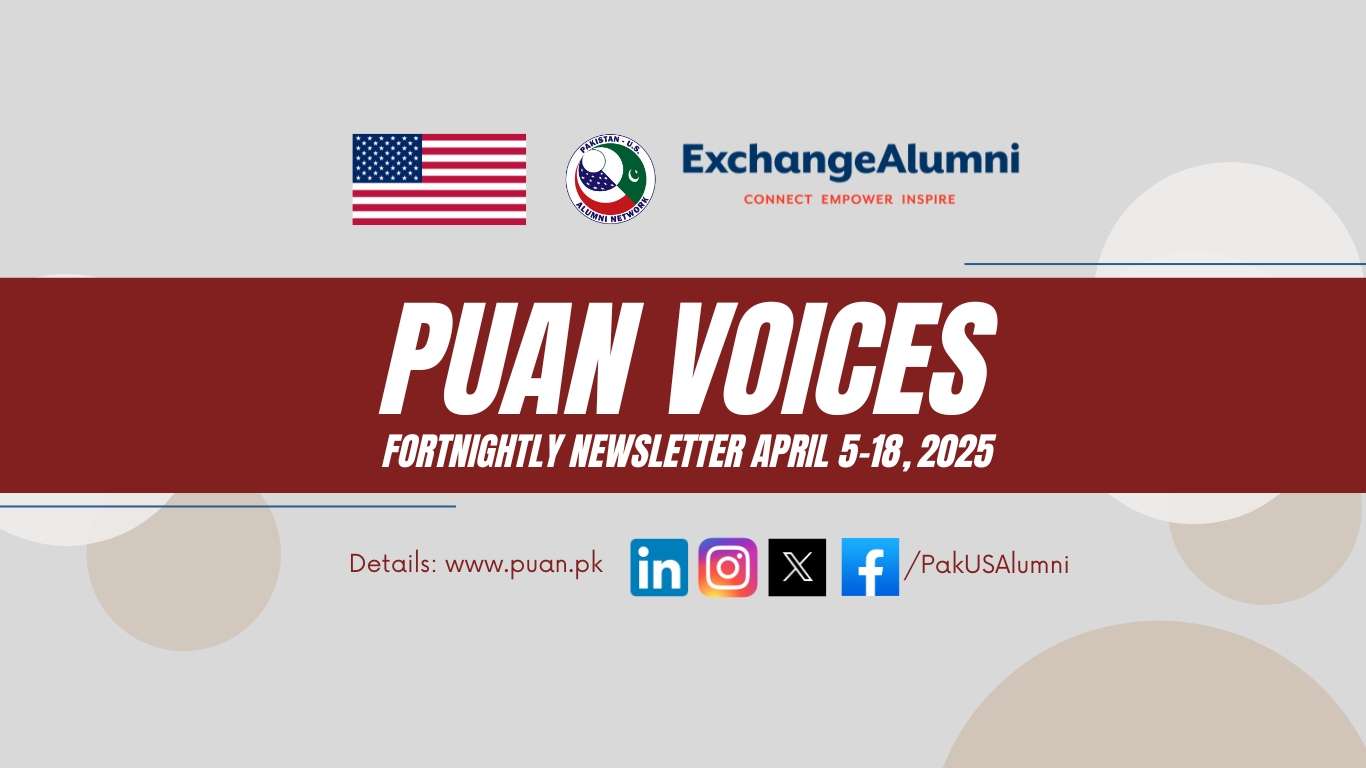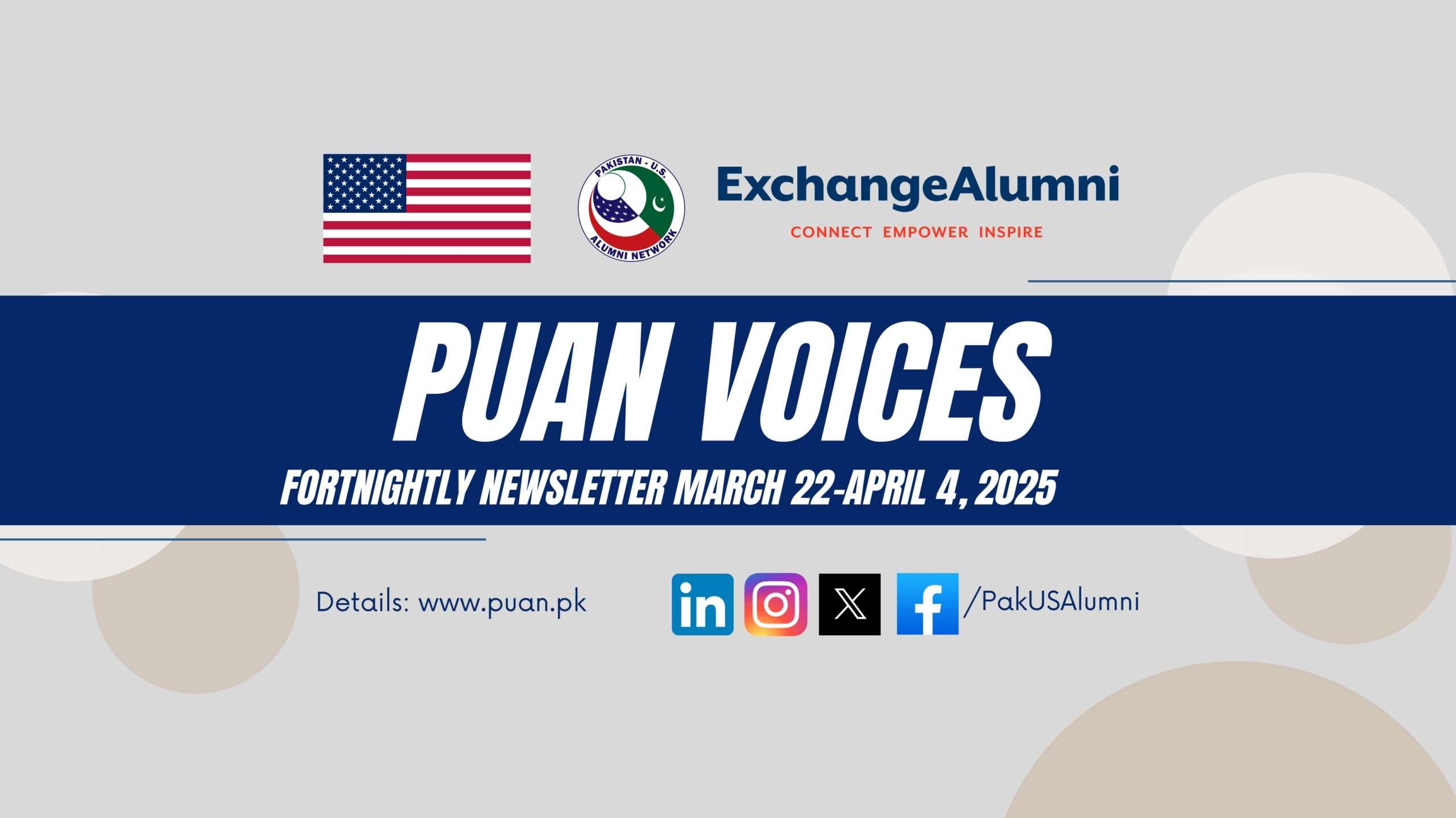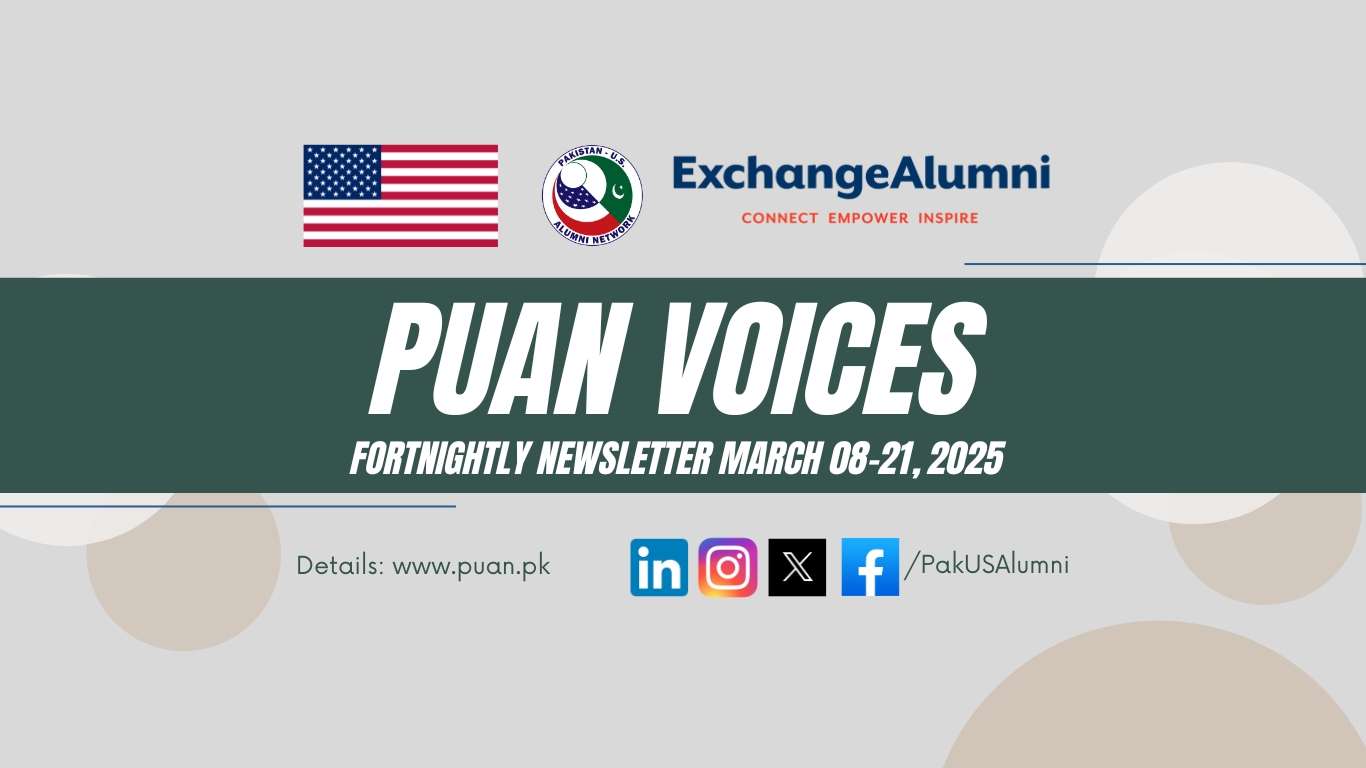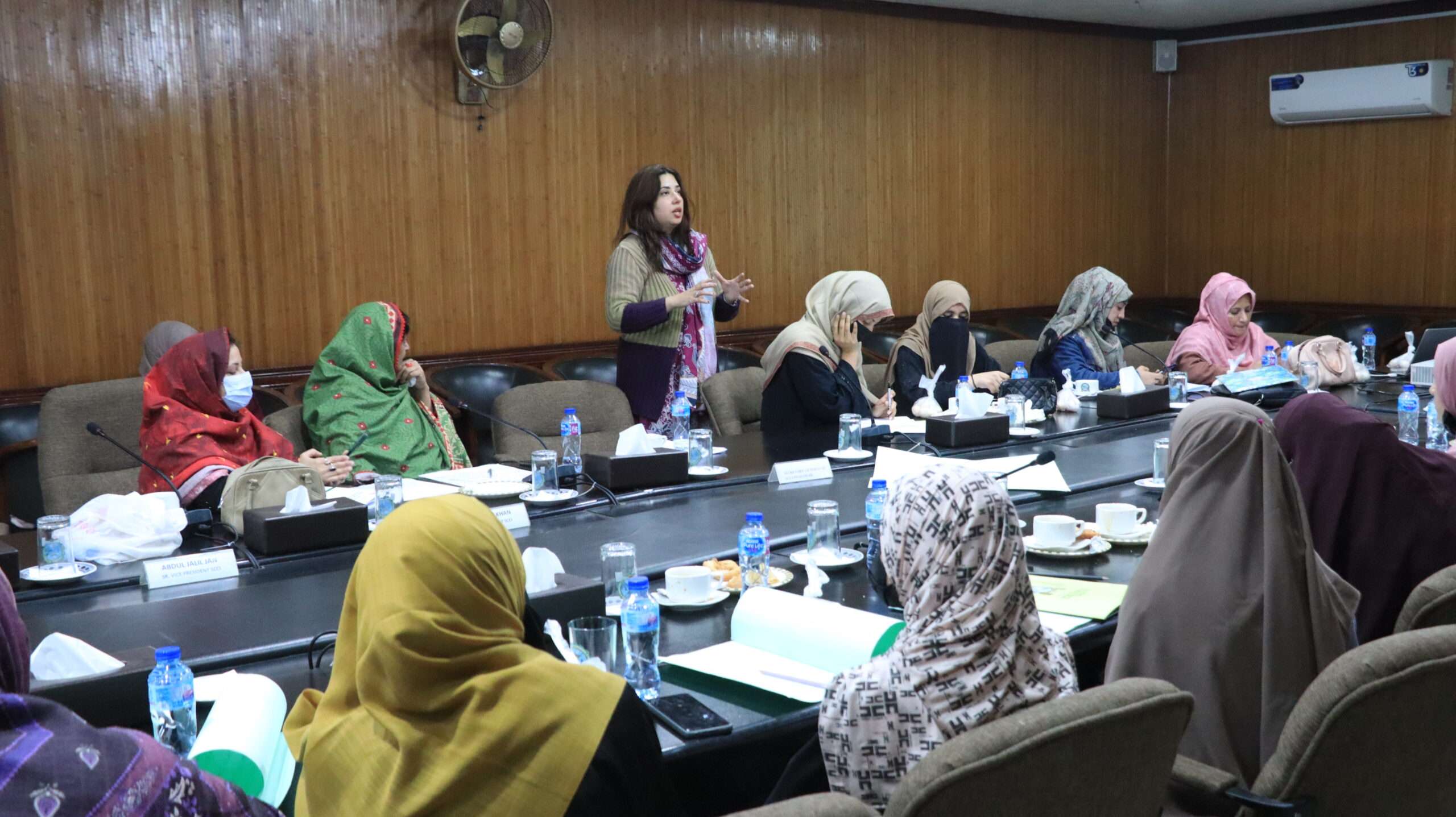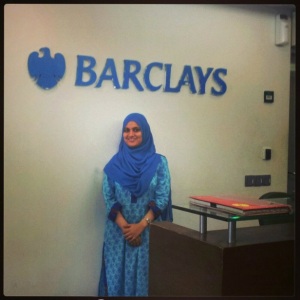
By Hira Nafees Shah
With a quickened heartbeat and sweaty palms, Global UGrad alumna Mehvish Iqbal Hashmi walked into the building. Although she had visited plenty of banks before, this experience was unique.
It was Hashmi’s first day at her internship–her first time working in a real office. Three months later, she would look back at the experience knowing it would shape her future career.
The Pakistan-U.S. Alumni Network selected Hashmi to participate in the network’s Fall 2013 Mentorship Program, which pairs young student alumni with senior alumni mentors working in different professions in Pakistan.
In 2012, the network launched the Mentor Program with just 13 mentees. The program has since expanded, with 40 mentees participating in the program nationwide last fall. The internship provides young alumni with valuable job experience—as well as a paid a monthly stipend for their work.
Karachi: Mehvish Iqbal Hashmi and Faizan Barlas
Hashmi, a software engineering student became a mentee of Study of U.S. Institute (SUSI) alumnus Faizan Barlas and was placed at Barclays Bank in Karachi.
“The mentorship program taught me how to handle bosses in a practical situation and how to make reports,” she said. “I also learned how to link my theoretical learning with real life.”
Before the internship, Hashmi was undecided about whether she should choose web development as her major in college or go for programming. But after her mentorship experience, she decided to stick with programming. According to her mentor, Hashmi added considerable value to the organization because she already had an understanding of the databases being used at the bank.
Elaborating on the nature of Hashmi’s work, Barlas said she was assigned a project in which the bank was revising its internal policies and was trying to make its operations smoother, so she coordinated with different departments to get information and compile a report.
Barclays Bank also benefited from the Mentorship Program, Barlas said.“For any organization, it is valuable to hear a different point of view and anyone outside the bubble can be helpful,” he said.
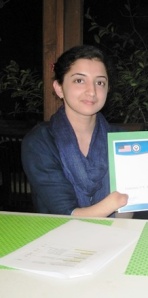
Islamabad: Azima Zaidi and Dr. Jehanzaib Khan
During the internship program, each mentor and mentee has the ability to customize their experience to their individual needs and goals. One Youth Exchange and Study (YES) alumna with just the right amount of motivation was special needs person Azima Zaidi.
Zaidi was paired with Fulbright alumnus Dr. Jehanzaib Khan, who works as an independent consultant for the education and development sectors in Islamabad. Zaidi was given a number of assignments such as collecting information onstudent assessment systems in Balochistan, Sindh and Punjab. She completed all of these tasks with gusto, according to her mentor.
“Whenever I had a problem, I used to ask my mentor for assistance and he was always very encouraging and forthcoming with information,” Zaidi wrote in her report of the experience.
Dr. Khan was impressed by the way his mentee performed and never let the challenges of her physical handicap prevent her from completing an assignment.
It was a valuable reciprocal learning experience, Dr. Khan adds. “I would love to be a mentor again.”
Peshawar: Syed Hussain Shaheed and Sadia Mehboob
International Visitor Leadership Program (IVLP) alumnus Syed Hussain Shaheed Soharwardi is an International Relations professor at the Peshawar University. He served as a mentor for UGrad alumna Sadia Mehboob and says the experience helped fulfill a longtime goal: to transmit his knowledge to future generations, not just within the domain of his university.
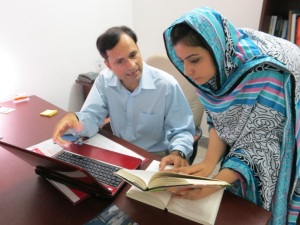
“Research skills are generally not polished in Pakistan and I wanted to impart them,” he said. “Through the mentorship program, we can bring about a change in the country and produce something positive.”
Helping others was also a goal that motivated Mehboob to take part in the program. The security situation in Peshawar made the alumna feel that research-based learning could go a long way in helping break the cycle of violence.
“It is important to look for options for countering terrorism in Pakistan and there needs to be a way to cope with the Talibanization,” she said.
Mehboob–a BSc Economics fourth year student–says the internship gave her valuable skills, including how to do write-ups, how to quote articles properly and how to function in a team. She appreciated the guidance provided by her mentor Soharwardi, which increased her desire to conduct more research.
“My relationship with my mentor was based on versatility,” Mehboob said. “He used to look at every issue from the realm of international relations, while I would look at them with their impact on world economy, so overall it was a colorful combination.”
She learned so much and developed such a good working relationship with her colleagues, that she has since been offered a full-time position–proving that the right internship can lead to great job opportunities in the future!


